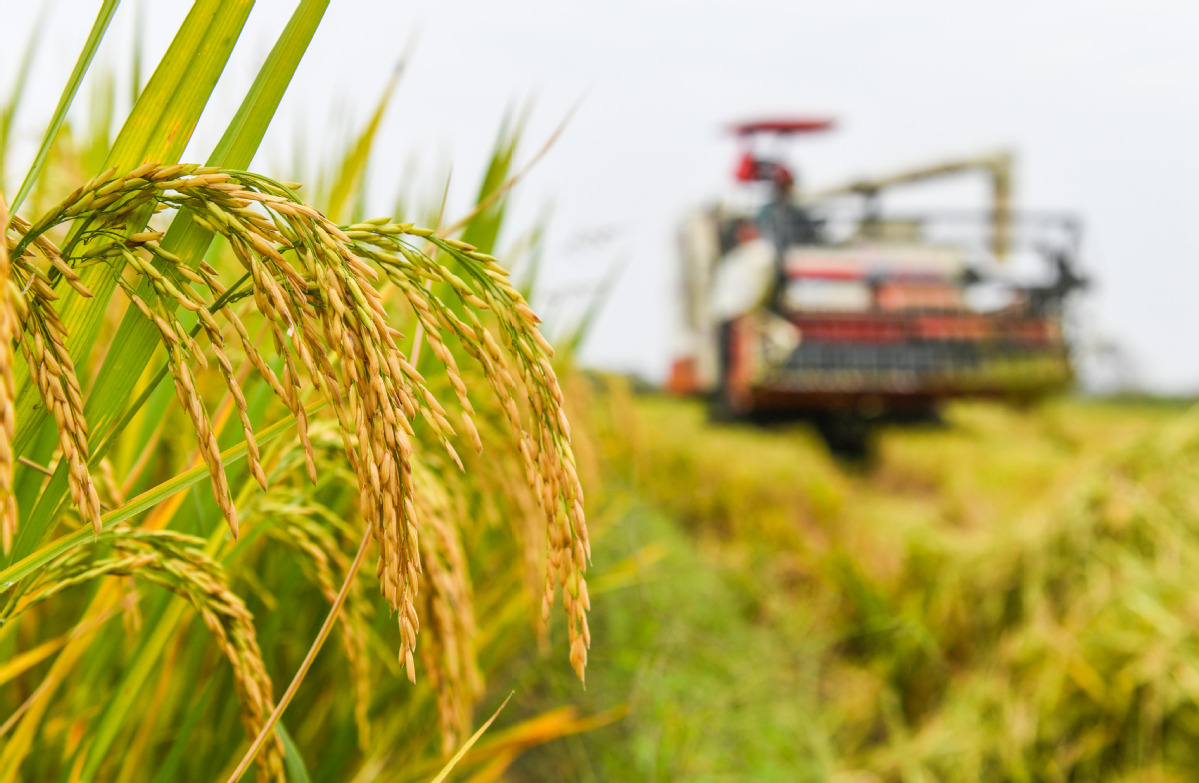Central government guideline focuses on increasing corn and soybean harvests

The central government has issued a guideline that aims to increase China's annual food production capacity by more than 50 million metric tons by 2030, with a focus on corn and soybean, the National Development and Reform Commission, the country's top economic planner, said on Tuesday.
China produces more than 650 million tons of grain a year and is almost self-sufficient in staple crops such as rice and wheat, but it is still heavily reliant on soybean from Brazil and the United States despite recent efforts to bolster local supplies.
The guideline, which was drafted by the commission with the Ministry of Agriculture and Rural Affairs, was recently approved by the State Council, China's Cabinet, and issued to relevant authorities.
The full text of the document has not been released, but the commission said it aims to discourage the nonagricultural use of farmland and stabilize food growing areas across the nation at around 116.7 million hectares by 2030, around the current level.
Grain productivity is expected to exceed 6.3 tons a hectare by then, it said, up from 5.8 tons last year.
The guideline also suggests priorities for boosting production of different crops, such as improving the quality of rice and wheat through optimizing variety structures, increasing productivity for corn and expanding growing areas for soybean.
Corn and soybean are important raw materials for making animal feed. In recent years, authorities launched a campaign to bolster productivity in 200 corn-growing counties and 100 soybean-growing counties through methods ranging from promoting varieties that can be planted more densely to stepping up crop management efforts to prevent diseases and damage from pests. A mix of crop rotation and intercropping methods has been employed to expand the growing area for soybean, which is also used to make cooking oil.
The commission has designated 720 counties across the nation as "key zones" for advancing the yield-boosting project over the next six years. They are expected to see the ramping up of efforts to build irrigation facilities and high-standard farmland suitable for large mechanical farming and more resilient to climate change, which some experts believe could also drive investment and help the economy recover from the impact of the COVID-19 pandemic. Initiatives will also be launched to bolster the quality and supply of crop seeds.
The guideline is part of China's move to build itself into an agricultural powerhouse through efforts such as preserving growing areas, promoting mechanical farming and popularizing higher-yield varieties.
Official figures show that China's annual grain yield has remained above 650 million tons for nine consecutive years, and the per capita food stockpile was 493 kilograms last year, well above the international food security threshold of 400 kg.
On multiple occasions, officials have reassured the public that China's food supply is stable and secure, while stressing the need to further raise productivity and output in the face of growing demand for animal proteins and pointing out the vulnerabilities in global supply chains.
An unnamed official told Xinhua News Agency recently that overall national food security is guaranteed. However, the official said: "The tight balance between grain supply and demand will exist for a long time. In the coming period, the existing gap between production and demand may further expand (if nothing is done)."
To make sure the output target is reached on time, the guideline says food production and farmland preservation is a politically important task for local officials and calls for multichannel funding for related work, the official said, adding that it also proposed measures to incentivize planting, streamline agricultural loans and improve food storage and transportation infrastructure.


